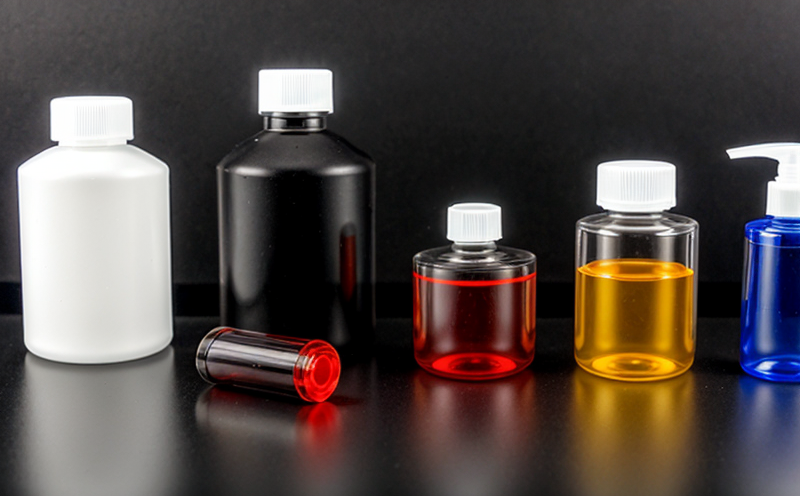ISO 1183 Density Testing of Plastics with Nanoparticle Reinforcement
The ISO 1183 standard is a widely recognized method for determining the density of plastics using the plastometer. This test provides critical insights into the properties of plastic materials, particularly in sectors such as automotive, electronics, and consumer goods where lightweighting is key to reducing material costs and improving performance.
Incorporating nanoparticles into plastics can significantly enhance their mechanical strength, thermal stability, electrical conductivity, or barrier properties. However, this process also introduces variability in the final product’s density due to differences in nanoparticle concentration and dispersion. Accurate measurement of these changes is essential for quality control and ensuring compliance with industry standards.
The ISO 1183 plastometer test involves measuring the volume of a small sample of plastic that is heated until it expands into a mold. The mass of the expanded material is then compared to its actual volume, allowing calculation of the density. For nanocomposites, this method can be adapted by carefully preparing samples that contain varying levels of nanoparticle additives. This approach helps in understanding how different amounts and types of nanoparticles affect the overall density.
During specimen preparation, it's crucial to ensure uniform distribution of nanoparticles throughout the sample. Techniques such as melt-blending or compounding can be employed depending on the type of polymer being tested. It is also important to account for any changes in the physical state of the material during heating and expansion.
The test apparatus used typically consists of a plastometer, which comprises a mold with defined dimensions, a heating element, and a balance capable of measuring small masses accurately. The sample is placed in the mold, heated according to specified conditions (usually at 180°C for polystyrene), and allowed to expand until it reaches the top of the mold.
Once the expansion process is complete, the mass of the expanded material is measured using precise scales. The volume is determined by multiplying the height of the expanded material by its cross-sectional area. From these values, the density can be calculated as follows:
- Density = Mass / Volume
Accurate and consistent results are vital for reliable data interpretation. Variations in test conditions or sample preparation could lead to significant errors. Therefore, adherence to strict protocols is necessary.
The results of ISO 1183 density testing provide valuable information about the effectiveness of nanoparticle reinforcement in plastics. By comparing densities across different samples, manufacturers can identify optimal levels of additive incorporation that balance strength improvements with desirable properties like flexibility and processability.
Benefits
- Improved Product Quality: Accurate density measurements ensure consistent product quality, which is crucial for maintaining brand reputation and customer satisfaction.
- Cost Efficiency: Understanding the impact of nanoparticle additives on density helps optimize production processes to minimize waste and reduce costs.
- Informed Decision Making: Reliable data enables informed decisions regarding material selection, processing conditions, and final product design.
- Regulatory Compliance: Ensuring compliance with ISO standards like 1183 is essential for avoiding costly legal issues and maintaining market access.
Eurolab Advantages
At Eurolab, we pride ourselves on delivering top-tier services that meet the highest standards of reliability and accuracy. Our state-of-the-art facilities are equipped with cutting-edge equipment capable of performing ISO 1183 density tests with precision. Our team of experienced professionals ensures each test adheres strictly to international norms.
We offer comprehensive support from initial consultation through final report delivery, ensuring customers receive not just results but also actionable insights. This includes detailed explanations of any deviations from expected outcomes and suggestions for improvement where necessary.
Our commitment to quality extends beyond technical capabilities; we prioritize client satisfaction by offering flexible scheduling options, transparent communication throughout the testing process, and clear documentation of every step taken during analysis.
Competitive Advantage and Market Impact
Accurate ISO 1183 density testing is more than just a compliance requirement; it plays a pivotal role in shaping competitive strategies within the industry. By leveraging this service, companies can gain valuable insights into how different types of nanoparticles influence material properties.
This knowledge allows firms to innovate faster and bring products to market sooner, gaining first-mover advantages over competitors who may still be using outdated methods or less precise instruments. Additionally, demonstrating adherence to stringent testing protocols enhances a company’s credibility in the eyes of regulators and customers alike.
In sectors where lightweight materials are critical for reducing vehicle weight or packaging size, accurate density measurements become even more important. They enable manufacturers to strike an optimal balance between performance enhancement and resource efficiency, thereby contributing positively to sustainability goals.





